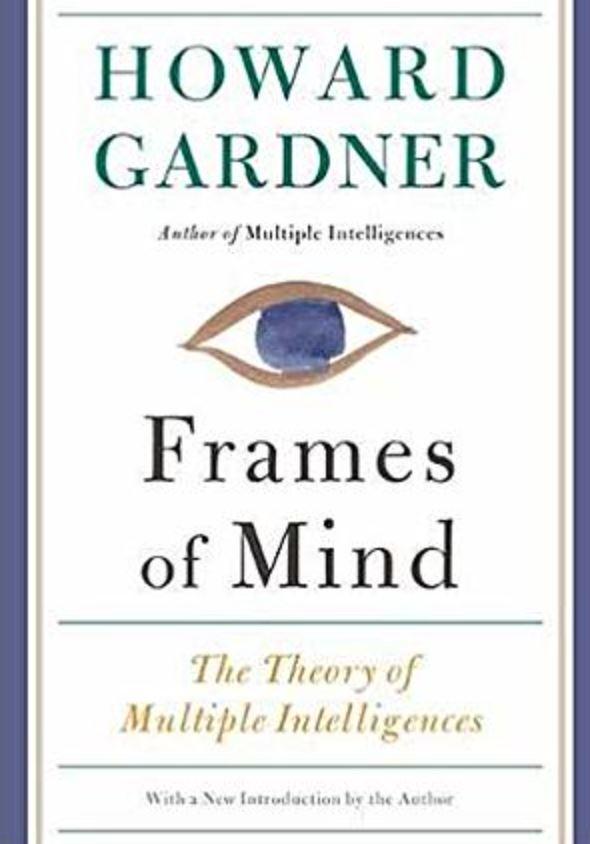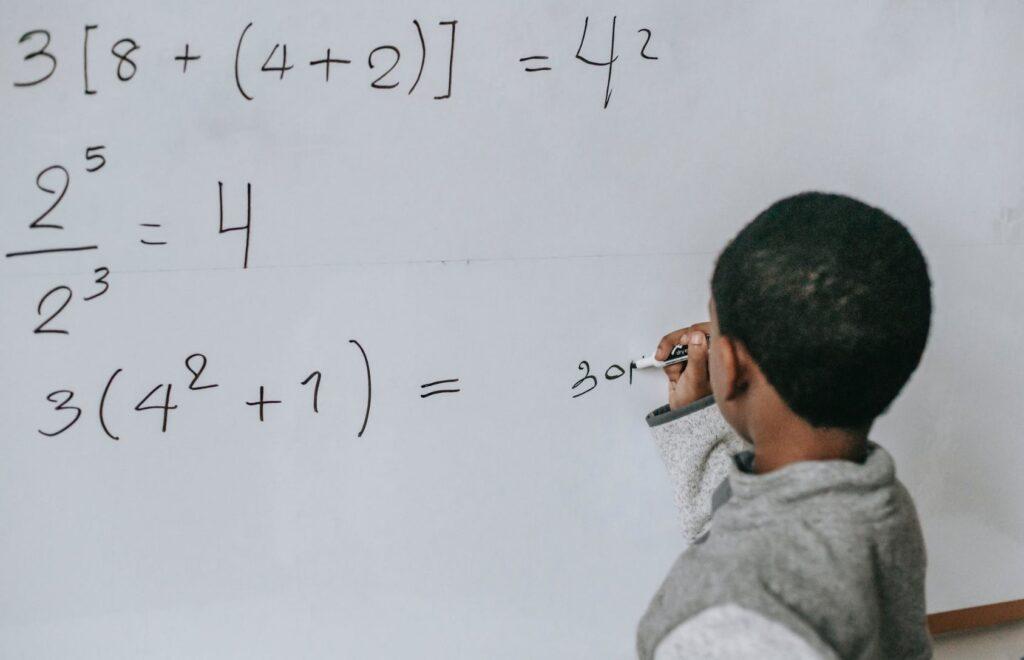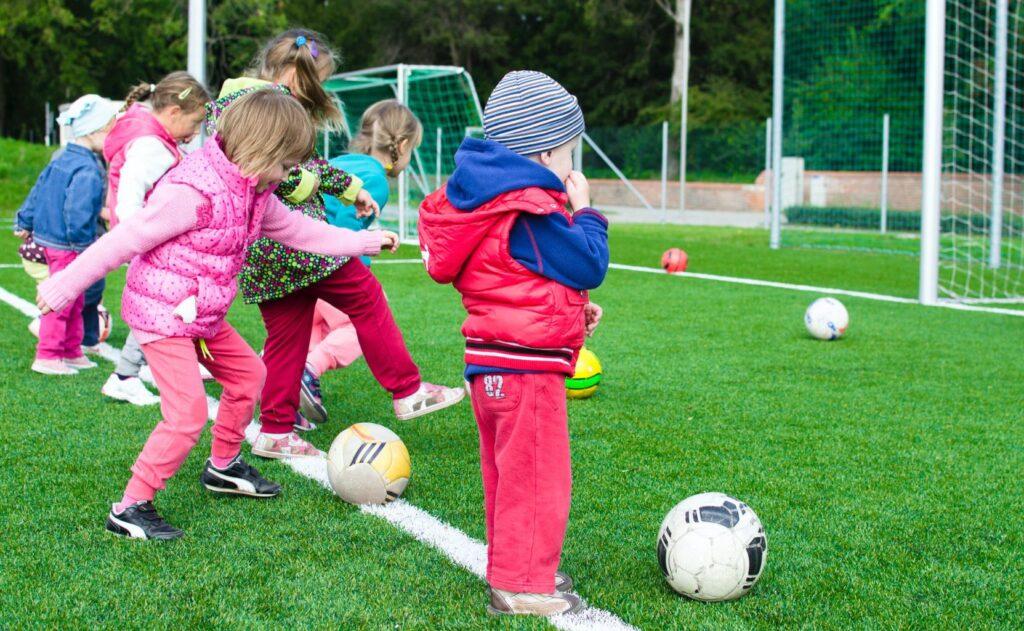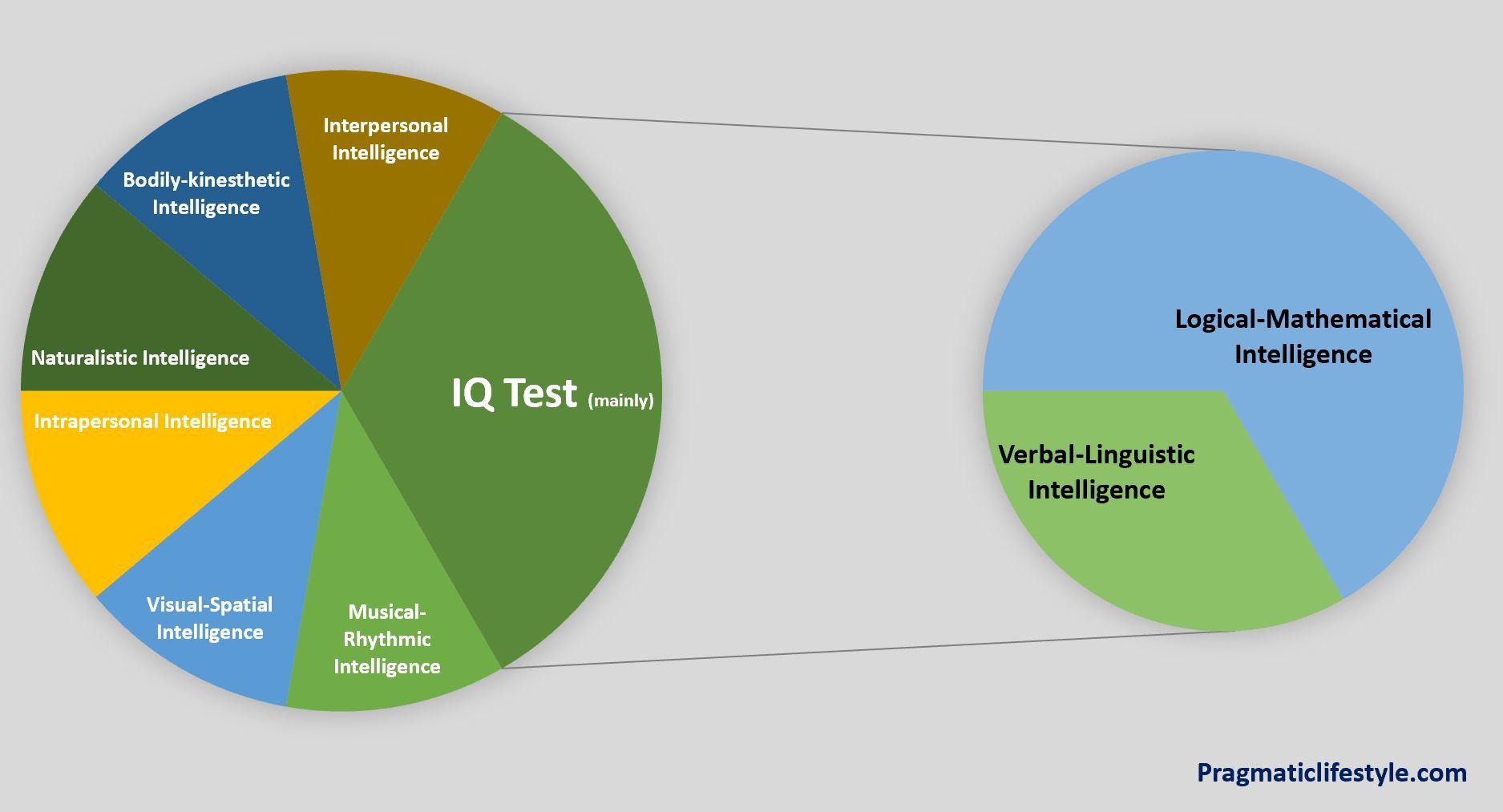When we talk about children’s intelligence, many parents first consider IQ or academic performance in school. Intelligence frequently conjures images of math and science, IQ tests, and complicated algorithms. People believed intelligence was valued, and those who possessed it was a cut above the rest. Unfortunately, intellectual intelligence appears to be the primary and only deciding factor. Is there only one kind of intelligence? Why are some kids better at music, others at sports, and still others at reading? Each kid has their own drives and gifted talents with different develop pace. While people and school system widely recognize some types of intelligence, the truth is that no intelligence is superior to another. Instead, knowing what kind of intelligence to help every kid maximize their inherent advantages and highlight the area they need be more grit to succeed is more important.

Table of Contents
The types of intelligence
Dr. Howard Gardner, a Harvard University professor of education, developed the theory of multiple intelligences in 1983 in his book ‘Frames of Mind: The Theory of Multiple Intelligences’. He implies that the traditional concept of intelligence, based on IQ testing, is far too limited to capture all children’s abilities and talents. Instead, Dr. Gardner proposes eight different types of intelligence to broaden human potential in children and adults.

Gardner’s Theory of Multiple Intelligences categorizes human intelligence into eight types according to information processing abilities: musical-rhythmic, visual-spatial, verbal-linguistic, logical-mathematical, bodily-kinesthetic, interpersonal, intrapersonal, and naturalistic. Although each individual has complete intelligence, there is always a dominant or primary form. Each intelligence is equally valuable, and each has the potential to be nurtured and strengthened or ignored and weakened.
1. Musical-Rhythmic Intelligence (music smart)
Related Reading:
- 6 Signs For a Musically Gifted Kids
- Group or Private Music Lesson: Which One to Choose?
- How Long to Practice Musical Instrument Per Week for Kids?

Musical intelligence is defined as “the ability to create and perform melodic patterns as well as recognize pitches, tones, and rhythms.” A kid with higher levels of musical intelligence are more sensitive to sounds, rhythms, tones, melodies, timbres, and pitches. They have an easy time remembering tunes and rhythms and detecting subtle noises and sounds that others may not be able to hear. They are typically talented in singing, playing instruments, composing, vocal coaching, and other music-related fields. Children have an innate ability to learn different sounds, which translates into an extraordinary ability to sing, listen to music, play instruments, compose songs, attend concerts, and follow different rhythms. This intelligence is capable of detecting off-key notes that others do not and of quickly memorizing songs and tunes.
Furthermore, musical intelligence lends itself easily to other types. As an example, “They may also be classified as having bodily-kinesthetic [intelligence]. They may also fall into the logical-mathematical category, because [they compose] music with half, one quarter note ect.” Also, because music is its own language, there may be some overlap with linguistic intelligence. While someone may be influential in one area, such as musical intelligence, they most likely have a wide range of abilities. For example, a person may have strong verbal, musical, and naturalistic intelligence.
| Musical intelligence characteristics | Potential Career Choice |
| Happy to singing and playing musical instruments. Easily recognize musical patterns and tones Remember your favorite songs and melodies. Understand musical structure, rhythm, and notes thoroughly. | Musician Composer Singer Conductor |
2. Visual-Spatial Intelligence (picture smart)
Related Reading:
You must know someone good at reading maps and navigate directions when peers lost. Visual-spatial intelligence refers to the ability to visualize, recreate, and manipulate spaces mentally. People with high spatial intelligence can easily create a mental 3D picture of an object or image and mentally move it and shift it to perceive different perspectives and which changes would occur in the physical world. Kid who is creative and usually good at map reading, solving mazes, or playing construction games are likely have the visual-spatial intelligence.

| Visual-Spatial intelligence characteristics | Potential Career Choice |
| Read and write for enjoyment Good at putting puzzles together Interpret pictures, graphs, and charts well Enjoy drawing, painting, and the visual arts Recognize patterns easily | Architect Artist Engineer Pilot Surgeon |
3. Verbal-Linguistic Intelligence (word smart)

People with high linguistic intelligence frequently consider how and when they will deliver a message, as well as the person to whom they will deliver it. They naturally enjoy learning languages, reading, writing, and debating.
Extroverted personalities often prefer linguistic intelligence because it allows them to move quickly in different social groups and be excellent storytellers and public speakers. Most IQ tests include this intelligence as well. People with high linguistic intelligence are excellent at expressing their emotions and thoughts in words that others can understand. Kids with this intelligence are enjoy reading, talking, telling stories and jokes, writing poems, learning languages, and playing word games.
Related Reading:
| Linguistic-Verbal intelligence characteristics | Potential Career Choice |
| Enjoy reading and writing Debate or give persuasive speeches Telling things in a story line Can explain things well Use humor when telling stories | Poet Novelist Journalist Editor Lawyer |
4. Logical-Mathematical Intelligence (number bright)

Logical-mathematical intelligence is the ability to analyze problems logically, perform mathematical operations, and conduct scientific investigations.
People with logical intelligence tend to be analytically strong, drawn to quantitative problems, and naturally at ease with reasoning and scientific practices. They are comfortable with numbers and frequently enjoy conducting controlled experiments to test hypotheses and problems.
This intelligence is regarded as the foundation of intelligence and plays a significant role in the IQ test. It includes the ability to think logically, abstractly, complexly, numerically, solve problems, and think critically.
Children with this intelligence are good at solving mysteries or brain teasers, puzzles, logic exercises, counting or calculating, computer problems, and strategy games.
Related Reading:
| Logical-Mathematical Intelligence characteristics | Potential Career Choice |
| Have excellent problem-solving skills Enjoy thinking about abstract ideas Like conducting scientific experiments Can solve complex computations | Scientist Mathematician Computer programmer Engineer Accountant/Statistician |
5. Bodily-Kinesthetic Intelligence (body smart)

Children who grow up playing sports are more likely to notice this intelligence. People with a high level of bodily-kinesthetic intelligence have excellent timing, mind-body coordination, and fine and gross motor skills. Because they can express themselves through their bodies, they frequently participate in dance and sports. They solve problems and learn by using their bodies.
Athletes, dancers, soldiers, builders, and doctors with high bodily-kinesthetic intelligence tend to excel. Kinesthetically intelligent children excel at dancing, acting, imitating gestures or expressions, playing sports, running, moving, and jumping.
| Bodily-Kinesthetic Intelligence characteristics | Potential Career Choice |
| enjoy dancing and sports enjoy making things with their hands have excellent physical coordination remember by doing rather than hearing or seeing. | Dancer Builder Sculptor Actor |
6. Interpersonal Intelligence (people smart)
Related Reading:
- Room Parent Feedback – Parents Involvement in Primary School
- 10 Ways to Be an Upstanders in Bullying
Do you have an innate ability to get along with others? Do you have a good sense of people and social situations? If this is the case, you most likely possess a high level of interpersonal intelligence. People with this intelligence are naturally good at reading people and can pick up on verbal and nonverbal cues in any interaction. They quickly develop empathy. They also easy to understand the intentions, motivations, and desires of others and, as a result, work effectively with them.
It is common in children who excel at talking, working in groups, assisting others, mediating conflicts, and meeting new people.

| Interpersonal Intelligence characteristics | Potential Career Choice |
| Communicate well verbally Are skilled at nonverbal communication See situations from different perspectives Create positive relationships with others • Resolve conflicts in group settings | Psychologist Counselor Salesperson Politician |
7. Intrapersonal Intelligence (self-smart)

Intrapersonal intelligence, as opposed to interpersonal intelligence, refers to the ability to understand one’s own emotions, sensations, and thoughts. People with this intelligence practice self-reflection, either through meditation or by keeping a journal of their emotions and thoughts. This conscious self-awareness enables them to clearly understand their weaknesses and strengths in order to develop personalized strategies and plans to achieve a goal. recognize the importance of life goals and how to achieve them These children prefer to work independently, to set and achieve goals, to understand their feelings, and to be aware of their own strengths and weaknesses.
| Intrapersonal Intelligence characteristics | Potential Career Choice |
| Analyze their strengths and weaknesses well Enjoy analyzing theories and ideas Have excellent self-awareness Understand the basis for their motivations and feelings | Philosopher Writer Theorist Scientist |
Emotional intelligence
In combination of interpersonal and intrapersonal intelligence, it is the emotional intelligence. It denotes the ability to recognize and manage one’s own emotions as well as the emotions of others. It is composed of five essential capacities, as proposed by psychologists Peter Salovey and John Mayer: emotional self-awareness, emotional self-control, self-motivation, empathy, and social skills.
As a result, emotionally intelligent people are aware of their own moods as well as the emotions and feelings of those around them, and they manage them assertively. These people have a high level of emotional granularity and empathy, but they do not let their emotions overwhelm them and instead have the psychological resources to channel them properly.
8. Naturalistic intelligence (nature smart)
Have you ever noticed how some people can make anything grow or how others can easily connect with animals? People with naturalistic intelligence are sensitive to the natural world. They like being outside, nurturing and exploring their surroundings.
Biologists, gardeners, farmers, animal trainers, and geologists are experts in their fields. These people have natural intelligence, which allows them to connect with nature. Innate intelligence is the ability to recognize patterns and relationships in nature. This personality type is good at organizing information and enjoys sensory experiences related to nature, such as cooking, gardening, and camping. They are frequently fascinated by botany and natural history. They are related to the attraction toward environmental issues, plants, and animals. People with this intelligence enjoy doing activities such as camping, hiking, caring for animals, learning about nature, recycling, and caring for the environment.


Is it possible to train intelligence?
Some scientists believe our kinetic genetics create and condition intelligence, while others believe it can be trained. Both are correct, and each of us has a higher intelligence than the others. As a parent, I think the intelligence can be gently guided through positive feedback cycle. To understand these intelligence is to help kids enhance their strength instead of fix their weakness.
While our schools and culture place a premium on linguistic and logical-mathematical intelligence. Individuals who exhibit gifts in other intelligence, such as artists, architects, musicians, naturalists, designers, dancers, therapists, entrepreneurs, and others, should be given equal attention. Unfortunately, many children with these abilities do not receive much support in school as the tight educational resource. When a heavily linguistic or logical-mathematical classroom fails to address these students’ unique ways of thinking and learning, many of them are labeled “learning disabled,” or simply underachievers.
The challenge is getting this information to as many parents as possible who know their children best, so that each child can learn in harmony with their individual minds. Recommend reading: In Their Own Way: Discovering and Encouraging Your Child’s Multiple Intelligences
Final Thoughts from Pragmatic Lifestyle
While many kids are happily getting both education and fun in school. The theory of multiple intelligences is important because it allows us to consider various types of mental abilities and strengths. Learning more about the types of intelligence can help parents recognize their kids’ intelligence and looking for additional education or trainings. There should not be a single criteria (IQ) to define if a kid is intelligent or not. Every kid has a shiny talent to be discovered and this intelligence will become their strength in the society when they grow up.
About Me
Hi, there. I am Lin. Together with my husband and two kids, we live in the beautiful Netherlands in Europe. I am dedicated to self-development, creating quality time for the whole family, and fully supporting kids with their potentials with all I have learned from engineering, MBA, and 10+ years of working experience in the energy sector.



5 Comments
Comments are closed.